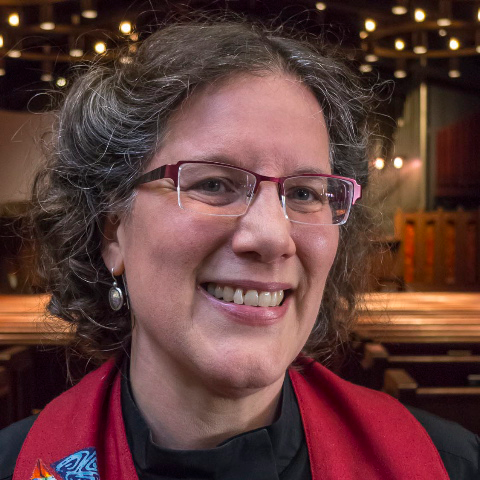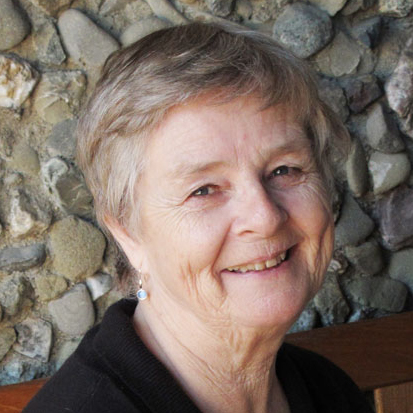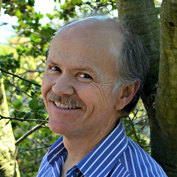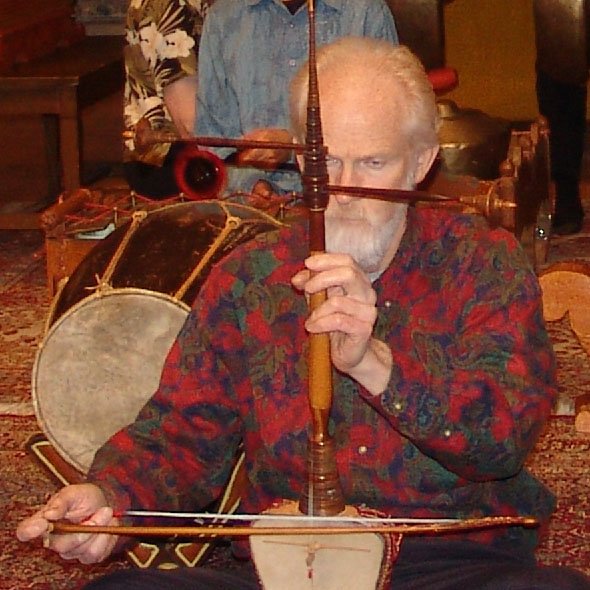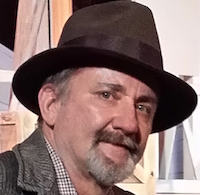A few weeks ago, I was sitting at my daughter’s gymnastics class with a pile of books, when a man approached me and asked me what I was reading. I told him I was rereading the diaries of Etty Hillesum, a Jewish woman from the Netherlands, whose writings from the early 1940’s had a profound effect on me. I said that Etty went through a spiritual transformation, at the same time that it became clear that the Nazi’s were out to destroy the Jewish people. I told the man that, as a result of her transformation, Etty refused to go into hiding. She wanted to be with her people. She still saw meaning and beauty in life, in spite of the danger and horror surrounding her. Etty was killed in Auschwitz, along with her family.
Then the man introduced himself as a Jewish postdoc student, from Israel. His face looked serious and friendly at the same time. I fell silent and was at loss of how to continue. Speaking about the Holocaust, as someone who has not personally witnessed discrimination or persecution, as someone who is not Jewish and has not lost family members during that time… I felt very humbled.
In her diaries, Etty expressed that she hoped to make a difference in the world with her writing. I hope I honor her with my words today. And I hope I honor the countless others affected in some way, their stories told and untold, including you.
Like Etty, I am Dutch. I moved to the U.S. ten years ago and lived in Amsterdam for 14 years before that. I actually read Etty’s words for the first time when I was taking a class here in Berkeley.
<><><>
Etty Hillesum was 29 when she was killed in Auschwitz in a gas chamber. Like Anne Frank, she kept a diary. Etty also wrote letters. Her work has now been translated into 18 languages. What we know of her was written in the timespan of two years, between the ages of 27 and 29, from 1941 to 1943.
Etty, short for Esther, came from an intellectual family. Her father taught Latin and Greek and later became the headmaster of a school. Her Russian-born mother had fled to the Netherlands after a pogrom. Etty had two brothers, Mischa and Jaap. All siblings were intelligent and gifted. Mischa was a famous young pianist and Jaap a promising doctor. Etty described her family as very dysfunctional. In her words: “a remarkable mixture of barbarism and culture.” Life at home was marked by volatility, drama and chaos. Everyone, except Etty’s dad, suffered from serious mental health issues.
When Etty moved out of her parents’ home, she studied Law and Slavic languages at the University of Amsterdam. Living in a large house with a group of housemates, she earned her stay by being an assistant housekeeper. She also tutored students in Russian grammar and literature.
The circle of people around Etty were intellectuals, not very political, although they were all opposed to the Nazi’s. They enjoyed discussing philosophy, music and literature. They were not a particularly religious group. Many did not belong to a church or practice their religion outwardly. Everybody smoked. People sat together and talked and talked. Although, they did more than that: contraceptives were widely available. In Etty’s circles Jews and gentiles were friends and lovers.
When she started her diaries, Etty was a privileged, rather self-absorbed young woman. She described herself as restless, emotionally confused and overly self-conscious. She pondered and pined about the men she loved, looking for gratification from the outer world, blaming circumstances or herself if that failed. She suffered from bouts of severe depression, acknowledging that she lacked the inner resources to face life’s ups and downs.
Ouch! I recognized a lot of myself in that early Etty when I read her for the first time. I too had been restless, confused and overly self-conscious for a large part of my adult life. I suffered from recurring periods of depression. It was painful to admit to myself how I had not acquired much inner resources to face the ups and downs of life either.
<><><>
Etty’s life changed when she met a man called Julius Spier. Julius had studied under Jung and was a so-called psycho-chirologist. This means that he read palms as well as worked as a psychotherapist. Julius encouraged Etty to examine her thoughts, to journal, pray and meditate. He was the catalyst for something she had been longing for: a tranquility and trust in herself. And a trust in life itself. She practiced being completely honest with herself, as well as gentle and kind. She caught a glimpse of the wisdom awaiting her and knew that it would take some time, and I quote: “… like clothes that are much too big and into which I still have to grow.”
In 1941 the Nazi’s invaded the Netherlands. The first bomb fell on the city of Rotterdam. Shock and fear set in. Soon after, restrictions on Jews began. They had to be registered and were fired from their jobs. Prohibited to use public transport. Suddenly, some of them were spat on in the streets. They were forbidden to have intimate relationships with non-Jews, later even forbidden to associate with them at all.
As the atrocities around her intensified by the day, Etty chose to concentrate on her personal growth. Some of her friends joined the Resistance; others, who were Jewish, went into hiding. A few committed suicide, not wanting to experience the inhumane conditions and violent death they foresaw. Others tried to continue life as well as they could and just hoped to survive.
Etty began to journal, pray and meditate daily. The content of her writing changed. Her yearning for a deeply spiritual life grew stronger each day. Her faith was not typically Jewish. It was not bound by any religious creed. She read the Bible, the writings of St. Augustine and various other Christian writers and mystics. Etty felt that she came closest to God in her own soul and refers to the inner work she did as follows: “There is a really deep well inside me. And in it dwells God. Sometimes I am there, too. But more often stones and grit block the well, and God is buried beneath. Then he must be dug out again.”
Over time, spiritual life became more real to her than physical life. At some point, a break with her former self became apparent…
On July 3rd 1942 she wrote:
“What they (the Nazis) are after is our total destruction. I accept it. I know it now and I shall not burden others with my fears. I shall not be bitter if others fail to grasp what is happening to us Jews. I work and continue to live with the same conviction, and I find life meaningful – yes, meaningful – although I hardly dare say so in company these days. Living and dying, sorrow and joy, the blisters on my feet and the jasmine behind the house, the persecution, the unspeakable horrors – it is all as one in me, and I accept it all as one mighty whole… ”
Then, at a time where some of the Jewish people in the Netherlands were still allowed to work and travel, Etty decided to go to Westerbork.
Westerbork was a Dutch transit camp in the Netherlands. Once a week, around 1000 people in Westerbork were loaded on a train and transported to Auschwitz, in Poland. Upon arrival, many of them were led straight to the gas chambers.
Etty described daily life in transit camp Westerbork.
The lack of privacy, the mud that was everywhere.
The constant haggling for food and medicine.
The purple lupines.
The blue skies.
The sounds of children sobbing every night.
The anticipation of the weekly transport to Auschwitz. Who would be chosen to go? Many guessed, it would mean death.
People who survived the war describe Etty as radiant at Westerbork. She would move from barrack to barrack, providing a listening ear and a kind word for everyone.
On July 12th 1942 she addressed God directly in her diary:
“I shall try to help You, God, to stop my strength ebbing away, though I cannot vouch for it in advance. But one thing is becoming increasingly clear to me: that You cannot help us, that we must help You to help ourselves. And that is all we can manage these days and also all that really matters: that we safeguard that little piece of You, God, in ourselves. And perhaps in others as well. Alas, there doesn’t seem to be much You Yourself can do about our circumstances, about our lives. Neither do I hold You responsible. You cannot help us, but we must help You and defend Your dwelling place inside us to the last.”
For a while, Etty was able to go in and out of Westerbork as she pleased. When she went for the last time, she knew that she would not be allowed to leave anymore. Etty handed her diaries to a friend and expressed the hope that they would be published. From then on, we can follow her through her letters.
Friends pleaded with Etty to go into hiding. She refused.
Etty worried that going into hiding would bring a different kind of death, a death that is a postponement of living. She wrote:
“I have looked our destruction, our miserable end, straight in the eye and accepted it into my life, and my love of life has not been diminished. I am not bitter or rebellious, or in any way discouraged… My life has been extended by death, by accepting destruction as part of life and no longer wasting my energies on fear of death or refusal to acknowledge its inevitability.”
<><><>
Most of us here have not experienced the kind of extreme circumstances that Etty was subjected to. Nor would we necessarily have made the same choices if we had. The particulars of our lives differ from Etty’s.
So how can her story reach into the present and touch us, inspire us?
<><><>
As for me, Etty helped me see a way out of depression. When I read her work for the first time, I gained a new perspective. Even if my life was not good at that very moment, I could no longer say that life itself was not beautiful and meaningful. The shame of my depression lifted and bit by bit I was able to see signs of life being good, in and of itself. I took those signs in and let them wash over me. Over time, I learned to see joy and beauty in many places. I now see it as a muscle that I know how to build and can continue to build. Etty helped me see life in a new way.
<><><>
I think that Etty can teach us two things.
First of all, Etty showed us what we, as human beings, are capable of, even in extreme circumstances. I recently came upon this one line prayer from a Rabbi. It said: “Let me not die while I am still alive.” Let me not die while I am still alive. Are we living as fully and meaningfully as we can? Are we looking for signs of beauty and joy, in spite of our problems and sorrows? Not because we are denying or avoiding pain. Simply because we can, while we are still here.
Second, Etty inspires us to think of ways, as she put it, “to help God.” In these times, how can we take responsibility for the health of our souls and for the health of our society? Discrimination, racism, persecution, the hunting down of people. It is happening here, now, in our country. It is hiding away in our souls, taking the form of fear or denial. The hate crime in the church in Charleston has left many people reeling, wondering if there is a place left in America where black people can be safe?
<><><>
Etty last written words were found on a postcard, thrown out of the train on its way to her death in Auschwitz. It said: “We left the camp singing.”
<><><>
Let us live fully while we are still alive.
And let us help God, let us help the Spirit of Life and Love.
Amen and Blessed Be.
Copyright © 2015, Stephanie Kroner, All Rights Reserved.







